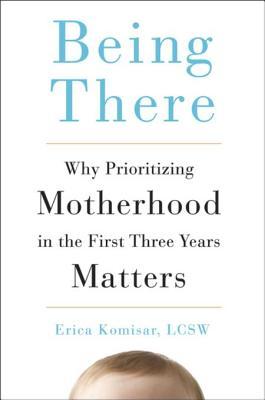
Being There
Why Prioritizing Motherhood in the First Three Years Matters
- اطلاعات
- نقد و بررسی
- دیدگاه کاربران
نقد و بررسی

March 6, 2017
Amid a landslide of literature examining the culture of the needlessly overworked, overstressed, and overwhelmingly busy mom, Komisar makes a different claim here: mothers aren’t doing enough for their children. Drawing from her practice as a psychoanalyst in New York City, Komisar makes the case that the mother is primarily and uniquely responsible for a baby’s development, and a lack of the mother’s responsive, nurturing presence in the early years can contribute strongly to all manner of behavioral and developmental problems. Komisar offers sound, warm guidance for baby interaction in an attempt to draw ambivalent mothers back into the home and gives several examples from her practice in which increased maternal involvement solved behavioral problems. Though she acknowledges the role of fathers and the burden on single mothers, Komisar regretfully concludes that children raised without the frequent presence of a mother are likely to grow up with serious problems. Despite Komisar’s well-intentioned tone, her perspective is ultimately dispiriting, since there is little indication that the near future will bring about the legislation for paid leave that would help all families to afford her ideal. Agent: Jane von Mehren, Zachary Shuster Harmsworth.

February 1, 2017
Why it is so critical to be present in your child's early life.Using current research, statistical evidence, and material from her work as a therapist and social worker, Komisar pulls together a cohesive argument about the importance of being physically and emotionally present during your child's first three years. During this time, a child is developing in numerous ways: physically achieving the goals of crawling, walking, talking, etc. and the emotional skills needed to cope with frustration, anxiety, separation, and other feelings. "Spending more time with your child during this critical period of development means she will have a greater chance of being emotionally secure and resilient to stress," writes the author, "as well as being better able to regulate her emotions throughout life, read others' social cues, achieve a higher emotional intelligence, and connect with others intimately." Komisar offers practical advice for mothers who must work, whether full- or part-time, offers suggestions for those who complain of being "bored" when they stay at home with a young child, and encourages mothers, fathers, and other caregivers to take the time to be fully present with the child. This means putting away the cellphone or computer and focusing on the child, getting down to her level to play, read, sing, and interact. The author also provides lists of important questions to ask before placing a child in day care, thoroughly explains the damage done to a child when a mother is absent, and considers why society doesn't place a higher value on the act of parenting. Komisar's information is common-sensical, but because American society has moved so far away from accepting mothering as a crucial job, it's quite welcome. As she notes, the health and well-being of our children should be first and foremost in every parent's life. Solid research and easy-to-follow advice about how to recognize "the essential role of mothers in the lives of their children and mak[e] it easier for women to be there when it matters most."
COPYRIGHT(2017) Kirkus Reviews, ALL RIGHTS RESERVED.




دیدگاه کاربران